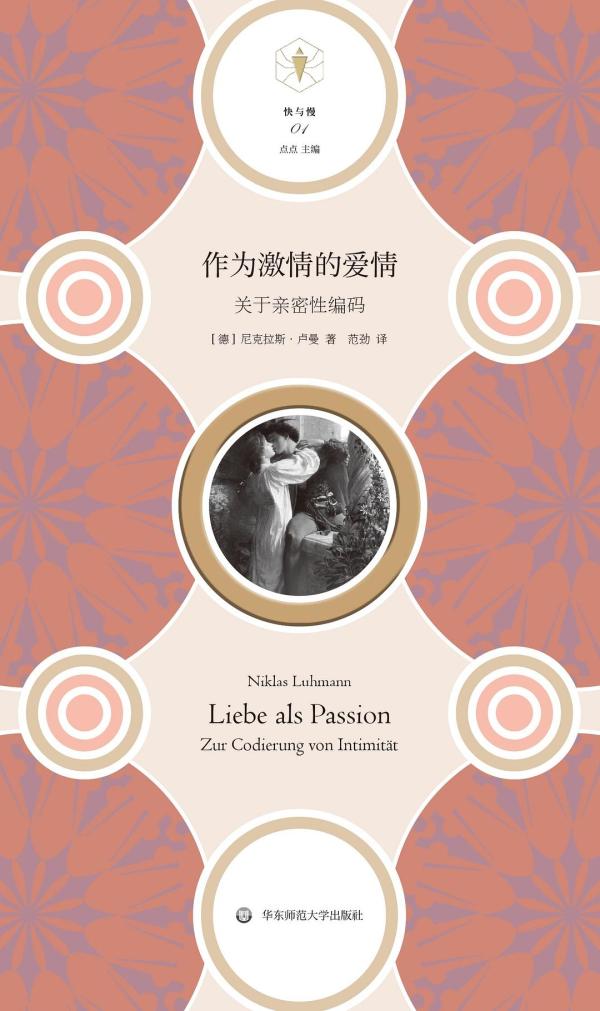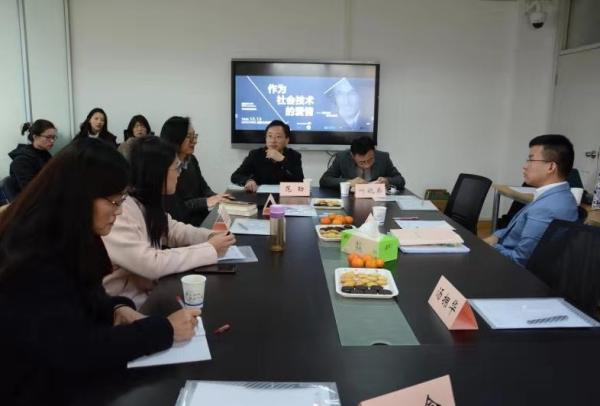Love is an outstanding paradox system.
"Love is a difficult problem, which makes people dazzled." Love is the most special part of personal experience and the most interesting topic in the social field. Luman, a contemporary sociologist, is aware of the social theoretical benefits of love phenomenon and has stepped into the research theme of love since the beginning of his academic career. In the winter semester of 1968, Adorno chose "love" as the teaching theme when he acted as the sociology chair of Frankfurt University.
Luhmann is a representative figure of German sociology system science, and is regarded as one of the few sociologists who have changed their "paradigm". After investigating the evolution of historical semantics of love since the 17th century, Luhmann, with two theoretical clues of sociology of knowledge and communication media theory, presented the process of love as a communication medium differentiating from society.
Recently, the Chinese translation of Love as Passion: About Intimacy Coding by Lu Man was published by East China Normal University Press. This book is the most popular work of Luhmann, and the "phenomenology of love" he established in the book plays an important role in his system theory. For Luhmann, love is a relationship with extremely low probability and an excellent paradox system. On the one hand, people worship ideal love, on the other hand, they realize its emptiness. There is no communication about the authenticity of love, only self-understanding. Uncertainty and high risk are both the source of tragedy and vitality of love. Love plays an integrated role through the paradox mechanism, making people learn to adapt to the paradox world.

Love as Passion: Coding for Intimacy
Recently, Fan Jin, a translator and professor of Chinese Department of East China Normal University, together with Ye Zhudi, editor-in-chief of Exploration and Contention, Tang Yonghua, professor of Chinese Department of East China Normal University, Xu Guangyin, Institute of Philosophy of Guangdong Academy of Social Sciences, Yu Mingfeng, assistant professor of Humanities College of Tongji University, Hu Chunchun, deputy director of German Studies Center of Tongji University, and Shi Meijun, editor of Six Points Branch of East China Normal University, visited Yuntong Building of Tongji University and participated in the round table "Love as Social Technology-Tongji Pioneer Philosophy Workshop".
Luhmann presents the vitality of love after "decentralization"
In Tang Yonghua’s view, the recent suicide incident of Peking University girls, which has been widely concerned, inevitably became the topic background of this round-table discussion. He believes that the appearance of this incident in today’s open society is like a black hole, which gives us a strong sense of contrast and makes us realize that there may still be risks in a society that has become safe because of openness. In the face of such an incident, we may know a lot of common sense about love today, have the experience of enlightening others, and have also learned the knowledge of love psychology. However, Tang Yonghua lamented that "these still can’t make us live this life well". In his view, our theoretical efforts to understand love are precisely the expression of Lu Manzhi’s "paradox within the system"; The way we deal with this paradox is to fall into this paradox, that is, on the one hand, we understand the incomprehensible love, but on the other hand, we still try to understand it and want to change it.

Roundtable discussion site
Xu Guangyin recalled his participation in a reading group with Fan Jin in Berlin. At that time, he read Kant and Hegel, while Fan Jin read Luhmann. This is his initial understanding of Luhmann. Xu Guangyin believes that Hegel and Lu Man have great similarities. Relatively speaking, Hegel has always had a "centrality": Hegel put forward a purely formal logic that started with paradox, and then developed a set of dialectical logic, but Xu Guangyin pointed out that this dialectical logic itself is subjective and centralized. Hegel maintained the self-consistency of dialectical logic, but subject philosophy finally led to a closed result. In contrast, Luhmann’s advantage lies in starting from differences and directly admitting complexity. Xu Guangyin explained that on some issues, Luhmann’s success over Hegel lies in decentralization and subjectivity, which makes Luhmann’s theory more applicable and operable.
So, what does the comparison with Hegel’s philosophy mean for us to understand Luhmann’s "phenomenology of love"? In Xu Guangyin’s view, the key is that it is difficult for a central and subjective philosophy to fully explain the love problem. This is because the love philosophy between two independent subjects, such as Hegel and Kant, will easily fall into a formal and guiding theory when talking about marriage or love, thus ignoring the details of love. On the contrary, Luhmann’s system theory can present the vitality of love after "decentralization".
Historical framework can’t penetrate the mystery of love.
Yu Mingfeng agreed with Xu Guangyin. He said: "You can understand what love is when you read about love in Hegel’s philosophy of law, but you can’t learn how to fall in love, but Luhmann’s book has a very specific description of love experience." Xu Guangyin added that Hegel’s openness is the openness of research topics, but Luhmann himself is open, and he provides us with an operable "meta-theory".
Hu Chunchun believes that he is more willing to use the concept of Bourdieu’s cultural capital to understand love than Luman. This means that the sociality of love is understood as capital; If we discuss love academically, we will discuss how to value this kind of capital in a specific context. Of course, the sociality of love always has a mystery, which also attracts generations of writers to create art. Regarding the "paradox" of understanding love pointed out by Tang Yonghua, Hu Chunchun believes that the only "Luman-style" way of discussion is to discuss Lu’s history in a framework; That is to say, we can’t discuss love itself, but we can show the history and story of love in a historical framework, but Hu Chunchun stressed that this still can’t help us penetrate the mystery of love.
"Love Wisdom": Philosophy and Love
Tang Yonghua added that love may involve more reflection than other activities. He asked: "Can a person really fall in love instead of figuring out what love is?" Yu Mingfeng agrees: "Love is a self-reflective process." Fan Jin believes that philosophy is such a form of reflection. Yu Mingfeng added that the original meaning of the word "philosophy" in ancient Greek is "love wisdom".
Yu Mingfeng said that he often told his students that philosophy is knowledge in the abyss: "Science is empirical knowledge, and philosophy is reflective knowledge, hovering in the abyss forever, and all conclusions will be reconsidered." In his view, love is also highly reflective and abyss. Love is the transfer of self-integrity, which means, "only when the other person is present can you feel complete. True love is to find the other half, and you are no longer a whole." In a sense, love makes people highly neurotic and madness becomes the norm. " Yu Mingfeng believes that the boys in the above-mentioned girl suicides are not in love, but are strongly expressing possessiveness. The problem is that this possessiveness brings illusion to the other party through a love mode, which makes the other party accused and constantly self-reflecting. This is an extreme case.
Yu Mingfeng talked about Ba Taye’s Theory of Love. According to him, Ba Taye linked love with religion, sacrifice and violence. From Ba Taye’s perspective, there is some similarity between love and death. Yu Mingfeng said: "The experience of love is intertwined with life instinct and death instinct. Such a power relationship is, in a sense, the danger of the love system itself."
Shi Meijun is associated with another book in the series of "Light and Heavy", Badiou’s "Love Duo". In the book, Badiou puts forward that the love between two people is actually a kind of "communism" realized on the smallest scale. It is called "communism" because this kind of love insists on the contingency in love. Shi Meijun thinks that Luhmann is discussing love in a very technical way, and Badiou is naive compared with Luhmann. In Shi Meijun’s view, Luhmann revealed to us the internal isomorphism between the paradox system of intimate relationship and the way of social organization, which means that in modern times, love is driven into the "private sphere" and thus separated from the "public sphere".